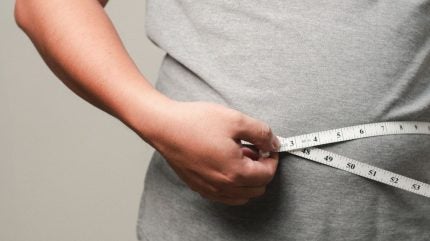

The UK’s House of Lords Food, Diet and Obesity Committee has called for a comprehensive plan to reform the country’s “broken food system”.
A report by the committee, titled ‘Recipe for health: a plan to fix our broken food system’, highlights the societal costs of obesity, which include billions in healthcare expenses and lost productivity, amounting to at least 1-2% of UK GDP annually.
According to the committee, unhealthy diets are the primary driver of obesity across all income groups.
The report stresses that “two-thirds of adults are overweight”, with nearly “one-third” classified as obese.
Diet-related risks are now the second leading cause of years of life lost, after tobacco.
According to the report, “there has been an utter failure to tackle this crisis”.
Access the most comprehensive Company Profiles
on the market, powered by GlobalData. Save hours of research. Gain competitive edge.

Company Profile – free
sample
Your download email will arrive shortly
We are confident about the
unique
quality of our Company Profiles. However, we want you to make the most
beneficial
decision for your business, so we offer a free sample that you can download by
submitting the below form
By GlobalData
Despite nearly 700 policies proposed between 1992 and 2020 to tackle obesity in England, rates have continued to climb.
Baroness Walmsley, the committee’s chair, said: “Over the last 30 years successive governments have failed to reduce obesity rates, despite hundreds of policy initiatives. This failure is largely due to policies that focused on personal choice and responsibility out of misguided fears of the ‘nanny state’. Both the Government and the food industry must take responsibility for what has gone wrong and take urgent steps to put it right.”
The committee said voluntary efforts by the food industry to promote healthier food have been ineffective and argued mandatory regulation is necessary.
It recommends large food businesses be required to report on the “healthiness of their sales” and suggests giving the UK’s Food Standards Agency independent oversight of the food system.
Additionally, a salt and sugar reformulation tax is proposed to encourage healthier product formulations.
Other measures include a ban on advertising less healthy foods across all media by the end of this Parliament and commissioning research into the health risks of ultra-processed foods.
To improve nutrition in educational settings, the committee calls for stronger compliance with school food standards and proposes auto-enrolment for Healthy Start and free school meals to increase access for eligible families.
Anna Taylor, executive director of UK charity The Food Foundation, said: “This brilliant report rightly states that supporting people in Britain to eat well is the single most important priority for the prevention of ill health.
“The committee has done just what the government needs and set out a set of affordable and feasible recommendations.”
UK-based frozen food company Nomad Foods said it “welcomed” the committee’s report.
The frozen-foods group, which owns brands such as Birds Eye and Aunt Bessie’s, was one of three “large” food manufacturers to provide oral evidence to the House of Lords inquiry.
It claims to be the “only major European manufacturer” to use the UK government’s nutrient profiling model.
The model, which is externally verified, benchmarks all products to ensure they meet a defined standard of health.
The company said it has grown its “healthy sales” over the past seven years, rising from 81% non-HFSS (high in saturated fat, salt and sugar) in 2017 to 93.3% in 2023.
Nomad Foods CEO Stefan Descheemaeker said: “We support measures requiring companies to report on the proportion of their sales that come from healthy products, which we have been doing for the last seven years.
“On tax, we believe this should be science-based in line with the UK government’s nutrient profiling model, that determines whether a product is healthy or less healthy based on its overall nutritional profile, rather than focusing on the specific levels of individual nutrients. This model would then help incentivise companies to reformulate to create healthier products.”
He added: “We’d also like to see mandatory front-of-pack labelling. That would help consumers to make more informed food choices.”

